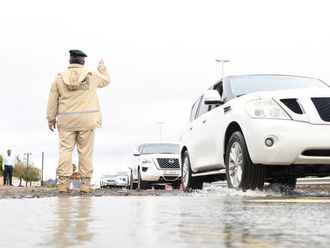Music was a great bonding agent when we were young. Our childhood was spent in the age of radios – yes, radios; even transistors, that could be carried around, were a new-fangled invention that took some getting used to! There were no dedicated television music channels (no television, remember?), no Walkmans or Discmans to carry our little world of preferences with us, and no iPods or smart phones to plug into our ears and transport ourselves into another world as we walked along the road or drove to work or jumped into a bus.
But we had something those of a certain vintage will remember. We had Radio Ceylon.
The group that was reared on this marvel of the 20th century is fast disappearing. In fact, there are probably many, many more out there who do not even recognise this old name for the Pearl of the Indian Ocean – but for those of us who heard our favourite music for the first time on that radio station, it will always be something we think of with nostalgia and joy and awe.
We probably learnt to tell the time by keeping note of when our favourite programmes were aired on Radio Ceylon.
We definitely learnt patience and cooperation while fiddling with that box-like contraption that took pride of place in the drawing room – and it helped that we had a common goal and one choice only. No endless range of ‘band widths’ and ‘channels’ and no one struggling to get hold of a remote controller to put a dampener on everyone’s spirits by channel surfing. As a family, we stood around expectantly until the most adept tuned in – and then, with a sigh of relief, we went into our own private heavens or grabbed one another and jived – or hopped – our way to happiness.
With no ‘instant’ replay of latest hits, no YouTube and Google, no way to hit the ‘tape’ button and retain what we wanted and play it again and again, we had to strain our ears to get the words of those songs of the sixties, we had to keep paper and pen ready and we had to make sure we wrote legibly at full speed so that the others in the family could understand what we had written. It was great training for the days ahead when we had to put down on our test papers all that we had crammed into our heads. We also invented our own brand of shorthand, but generally reserved that for the times when we jotted down those little ‘extra’ notes in class as our teachers spoke.
We had some help with lyrics in the form of palm-sized books that we sometimes came upon in the market or in our friends’ homes. Owning those books was a luxury beyond our pockets so we took it in turns to flip through and copy down the words of the songs that specially appealed to us. And as we did so, we memorised most of them and crooned along when we heard the song next (tunelessly, we later realised). But it did help our memories: and if songs came so easily, why should we have any problem with our poetry and literature and other subjects that involved learning and appreciating words?
But most of all, our music brought us together for that hour or two each day. And as it worked its way into our souls, it also burned many Kodak moments with our parents and siblings into our memories.
Perhaps that is why, when we hear those old songs now, they are more than just music and lyrics for us. They represent a return to the days of simplicity and camaraderie – and they tug mightily at our heartstrings.
Cheryl Rao is a journalist based in India.










